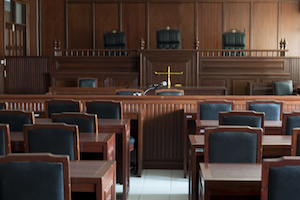A South Carolina man’s conviction for criminal sexual conduct with a minor has been reversed by the South Carolina Court of Appeals because the court found that the child’s therapist improperly vouched for the alleged victim’s testimony by testifying as both a lay witness and an expert witness.
The Alleged Crime
In 2015, training specialists from the Julie Valentine Center visited Mitchell Road Elementary School in Greenville, South Carolina to discuss safety and “inappropriate touching” with students. Approximately two weeks later, the alleged victim reported to her teacher that she had been sexually abused. The alleged victim was eight years old at the time.
Investigator David Picone of the Greenville County Sheriff’s Department spoke with the alleged victim, her mother, and her teacher about the disclosure. The alleged victim told Investigator Picone that she was abused by her sister’s boyfriend, Ontario Stefon Patrick Makins.
The alleged victim said that the abuse began when she was five years old. Investigator Picone followed the sheriff’s department procedure for referring children under the age of twelve to the Julie Valentine Center for a forensic interview.
Investigator Picone interviewed Makins and informed him of the allegations of sexual abuse, which he denied. Christine Carlberg of the Julie Valentine Center conducted a forensic interview with the alleged victim. After watching the forensic interview, Investigator Picone determined probable cause existed to arrest Makins.
Makins was charged with criminal sexual conduct with a minor, first degree; lewd act upon a minor; and criminal sexual conduct with a minor, third degree.
The Trial
At Makins’s trial, the alleged victim testified that on more than one occasion, Makins asked her to perform oral sex, touched her inappropriately, and showed her a sexually-oriented website on his cell phone. The alleged victim admitted she lied to the police when she reported Makins threatened to kill her if she disclosed the abuse.
During trial, the circuit court allowed the alleged victim’s therapist, Kristin Rich, to testify as both an expert in child sexual abuse trauma and as a fact witness regarding the allegations of sexual abuse. Makins’s counsel objected, but the circuit court overruled the objection.
The jury found Makins “not guilty” on the first degree criminal sexual conduct and lewd act indictments, but found him guilty of third degree criminal sexual conduct with a minor. The circuit court sentenced Makins to ten years in prison.
The Appeal
Makins appealed his conviction, claiming that the circuit court erred in refusing to allow him to cross-examine the alleged victim about her prior allegations of sexual abuse and by allowing a therapist to essentially vouch for the alleged victim’s credibility by testifying both as a fact witness regarding the allegations of abuse and an expert witness on child sexual abuse trauma.
The South Carolina Court of Appeals agreed with Makins. In its opinion, it wrote, “We find Rich’s opinion testimony addressing the various manifestations of child sexual abuse, followed immediately by her affirmative response that she treated Victim, implied she believed Victim was telling the truth with respect to her allegations of sexual abuse. If Rich believed Victim had not been telling the truth, Rich would not have needed to treat her. As the circuit court warned, Rich’s testimony implied she was treating Victim for sexual trauma because Victim had suffered such trauma.”
The court reversed Makins’s conviction and remanded the case for a new trial.




